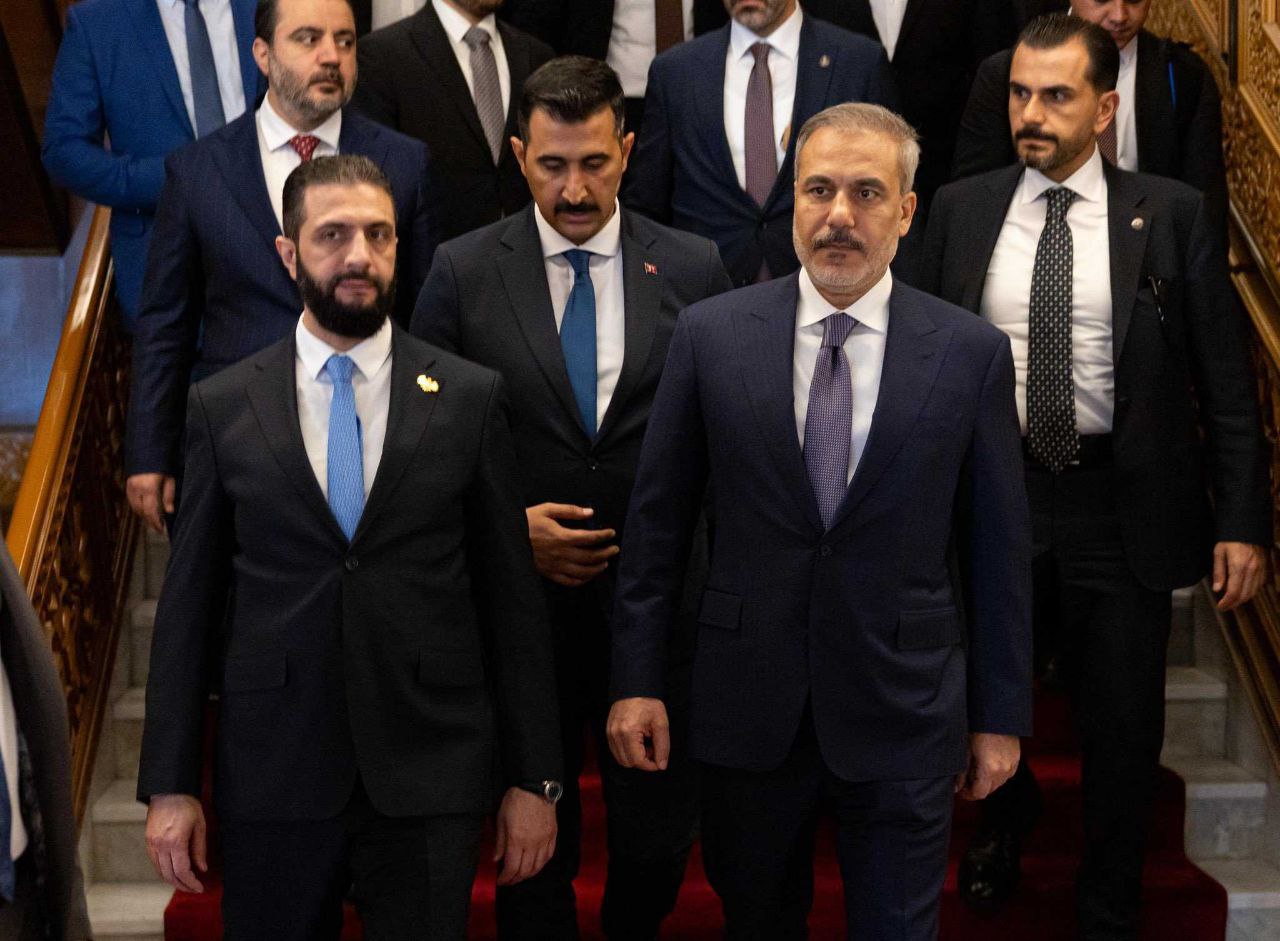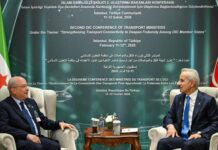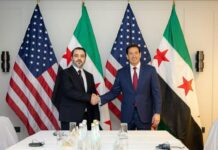
Turkey is reinforcing its role as a principal foreign partner of Syria’s transitional government, pledging security support, economic cooperation, and joint efforts to safeguard the country’s unity during a volatile political period.
In an August 7 visit, Turkish Foreign Minister Hakan Fidan met Syrian President Ahmad al-Sharaa in Damascus to discuss bilateral ties, Syria’s reconstruction, and regional security threats. It was Fidan’s third visit to the Syrian capital since the fall of Bashar al-Assad’s regime last year.
Talks focused on Ankara’s security concerns in northeast Syria, where clashes between the Syrian Democratic Forces (SDF) and Syrian government forces intensified. The SDF, which has links to the outlawed Kurdistan Workers’ Party (PKK), controls much of the region. Under a March 10 agreement with Damascus, the group was to integrate into the Syrian army and hand over oil fields within a year. Turkish officials say that commitment is not being honored.
Rejection of Corridors and “Imperialist Projects”
Turkey has voiced strong opposition to proposals for a corridor linking Suwayda in southern Syria to SDF-controlled territory. Ruling Justice and Development Party (AKP) spokesman Omer Celik described such plans as a threat to Syria’s sovereignty and “imperialist projects channeled through terrorist organizations.” He warned Ankara would take “necessary measures” to protect its national security and prevent any moves that could undermine the transitional process.
The Turkish Defense Ministry has also accused the SDF of exploiting unrest in southern Syria and violating its agreement with Damascus. On August 2, Syrian forces repelled an SDF infiltration in Manbij countryside, wherein SDF missile fire injured four soldiers and three civilians, according to the ministry. Syrian units later retaliated against the sources of the shelling.
International Backing for Syrian Unity
Turkey’s call to safeguard Syria’s territorial integrity is shared by Egypt and the US, all reject separatist or federal alternatives. In Cairo, Fidan and Egyptian counterpart Badr Aty reaffirmed Syria’s unity is a “red line” and urged an inclusive political settlement that addresses the aspirations of all Syrians.
Washington echoed this position, with US Special Envoy Tom Barrack praising SDF commander Abdi’s pledge to work toward “one army, one government, one state” through integration into Syria’s military. State Department spokesperson Tammy Bruce said the US supports dialogue between Damascus and the SDF to solidify that process and turn the current ceasefire in the northeast into lasting peace.
Confronting Regional Instability
Turkish-Syrian talks also addressed tensions between Syria and Israel, which Ankara accuses of seeking to fragment the country. Fidan said Israel’s actions threaten regional stability and urged the international community to counter what he described as destabilizing policies.
He emphasized Turkey’s Syrian partnership extends beyond security, citing plans to deepen cooperation in trade, investment, transportation, and energy. Fidan reaffirmed Ankara’s readiness to assist Damascus in managing camps in the northeast and in rebuilding its defense capabilities.
“Turkey will continue to support the legitimate will and aspirations of the Syrian people,” Fidan said framing Ankara’s approach as both a regional security imperative and a long-term investment in Syria’s stability.








